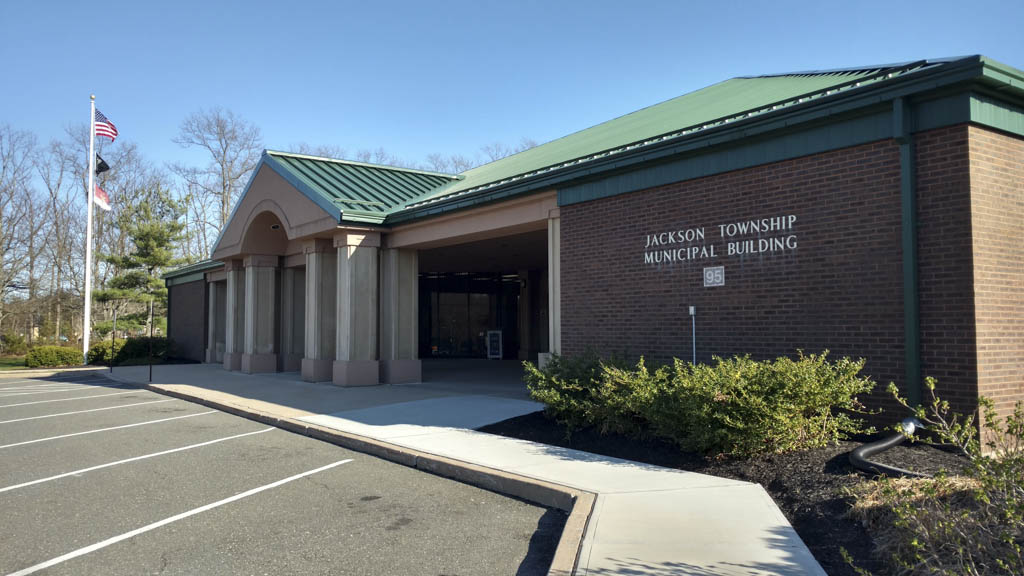JACKSON – Members of the Township Council have introduced a $44.17 million budget to fund the operation of Jackson during 2018 and set April 24 as the date for a public hearing on the spending plan. Residents may comment on the budget at that time.
The 2018 budget will be supported in part by the collection of $32.35 million in taxes from Jackson’s residential and commercial property owners. The increase in the tax levy this year amounts to $550,000. The municipal tax rate will increase to 47.9 cents per $100 of assessed valuation and with the average home assessed at $326,823, the owner of that home will pay $1,565 in municipal taxes, a $21 increase from 2017.
In 2017, the budget totaled $42.4 million and included a $31.8 million local tax levy. The municipal tax rate was 47.3 cents per $100 of assessed valuation, the average home was assessed at $326,489 and the owner of that home paid $1,544 in municipal taxes.
Council President Ken Bressi, Vice President Robert Nixon, Councilman Barry Calogero, Councilman Scott Martin and Councilwoman Anne Updegrave voted to introduce the budget at the March 27 meeting.
Municipal taxes are one item on a property owner’s tax bill. In Jackson, property owners also pay Jackson School District taxes, Ocean County taxes and other assessments. The impact of any taxing entity’s budget on a property owner is dependent on the assessed value of that individual’s property.
During a discussion of the budget, Bressi noted that a significant number of non-residential projects are breaking ground in Jackson.
“The cycle at the Planning Board, if you watch it closely, is that we have more non-residential applications than residential, so now that the economy has somewhat turned around and the Permit Extension Act has ended, we may get to a goal that is stated in the township’s master plan” of having more commercial development, said Bressi, who sits on the board.
The purpose of the Permit Extension Act was to revive and extend state, county and local government approvals for development following the Great Recession of 2008-09.
Bressi said since the act lapsed, developers need to move on their approvals or apply for a new extension.
“There are so many approvals the developers sat on for commercial property and did not want to put their money into it … money is freeing up from banks now, we can see an improvement already, and just the last couple of weeks with what was approved at the Planning Board level (with) commercial properties reflects that,” he said.
Bressi said when Jackson’s master plan was updated in 2010, residential properties comprised about 87 percent of the tax base and non-residential/commercial properties comprised about 11 percent of the tax base.
“If the new master plan was ever built out to what it is planned for, at least 75 percent, not even 100 percent, it would reduce the burden on residents by about 13 percent (and) bring (the residential tax base) down to about 74 percent and bring commercial up to about 23 percent. That would be a great, great goal and it would really change everything,” Bressi said.
Regarding the 2018 municipal budget, Nixon commended Mayor Michael Reina and Business Administrator Helene Schlegel for a “very fiscally responsible” proposal.
“Picture a dollar bill and how much of your tax dollars are going to fund certain portions of the government; 20 cents of every dollar funds this municipality, which means 80 percent of your tax dollars are going to other government entities (school districts and Ocean County),” Nixon said.
He said with that 20 percent, Jackson is an extremely well run municipality.
“You get an amazing police department, which has expanded, you got an increase and enhancement in services, recreation and senior services, you got clean streets, you got a very effective administration which is rather lean and mean in terms of employees, so I think the price per dollar is very fair compared to any town in New Jersey. This is an extremely well run municipality and I think the increase in the tax rate is low in comparison to some of the pressures being put on other municipalities,” Nixon said.
One major capital project the 2018 budget includes is a police radio systems upgrade at an estimated cost of between $5.5 million to more than $6 million. Jackson currently spends about $65,000 per year for rental space on a tower site. Officials said they believe it may be time to consider building a tower and becoming a for-profit landlord by renting out space rather than a perpetual renter of tower space.

